The Other Side of the Curve
China is a country that often lives under both a physical and metaphorical fog; where the enduring symbol of mass industrialisation and the effects of a century-old authoritarian government coalesce. Despite the dramatic rise to the global stage in the second half of the twentieth century and beyond, there is still an unspoken sense of distance between itself and the West.
As with all relationships that desire to be healthy, a strong and successful intercontinental partnership is a two-way street: it relies on both parties to cooperate, show compassion and create a foundation of trust and understanding.
China continues to be largely misunderstood in the West, and in many cases, for lack of trying. At the very core, stripping away the performative layers of politics and patriotism we see in both the US and China, we are left with the millennia-old issue of international relations that territories and individuals alike can empathise with: a language barrier.
What makes this one so difficult to break is not simply the fact that two broad families of language evolved from opposing sides of the world; it’s become customary in a Western-centric narrative to treat other cultures as secondary, inferior to one’s own. The same could be said for the East, in this respect, however the dominance of the West over the world economy and English-language mass media has never been overlooked or underestimated by China or its government. Instead, with as much irony as necessary for an apparent socialist state, China sought to capitalise on the extraordinary growth in the US and parts of Europe—riding on the coattails of the American Dream.
The pandemic has marked an interesting point-of-no-return for the relationship between China and the West: the power dynamic has already shifted considerably, with the latter feeling the dramatic economic effects of a world that was essentially sans-China for three months. When the tide turned in late February/early March and the human cost emerged in Italy, Spain, the US and the UK, suddenly Western countries were looking to the East for guidance and deliverance—in all senses of the word. And yet, there is still so little information we truly know about life on the other side of the curve; considering large media outlets such as the BBC, The New York Times and The Wall Street Journal all have international teams of reporters, the lack of first-hand interviews with ordinary Chinese people is still surprising. China has never been touted as the world’s most transparent country (and Western media never hesitates to highlight what the consequences of whistleblowing can be), but it is both large enough and influential enough where it is still easily penetrable for primary insight—even if the government has physically removed you from the country.
Via WeChat, we interviewed a number of Chinese adults working in different sectors to better understand general public sentiment concerning the situation in China; the government’s crisis management; and the portrayal of the above by the West. This is a small sample of what is guaranteed to be a much broader spectrum of opinion, but it aims to break down some of the mystery surrounding the country where COVID-19 was first detected.
Please note: these interviews have all been translated from the original Mandarin with the help of a native Mandarin speaker. We have aimed to keep them as true to the intended meaning as possible.
These interviews were conducted on 24th March 2020
“…it is a test of individual logical thinking ability.”
Age
area
Job
40+
Shanghai
Senior employee at one of China’s leading commercial banks
1. When do you think China's production and life will return to normal?
Except for Wuhan, most provinces and cities have gradually restored normal working, living and transportation facilities. For example, in Shanghai, express delivery is available again; parks, museums and restaurants have been opened to control the flow of people; the subway has resumed the bustle of the past, the only difference is that everyone still wears a mask.
2. What do you think of the government's response to the epidemic?
After the outbreak in Wuhan this time, the government's measures to close the city were still very decisive, effectively controlling the spread of the epidemic area, and ensuring the country's control of the epidemic as soon as possible. Concurrently, doctors and medical supplies across the country supported Wuhan and the cities around Hubei, such as the construction of the Fangcai Hospital, which has also treated patients to the greatest extent.
3. What is the biggest impact this outbreak has on your life?
My daughter’s plans to return from Vancouver during the Spring Festival were cancelled due to the epidemic. However, the epidemic situation also led to a longer period at home later, an opportunity for parents and children to get along, and strengthen the relationship.
4. What was the most frustrating thing you encountered in this epidemic? What would you most like to criticise?
During the epidemic, I felt a strong impact from world media. Internet news spreads very fast, but the truth, rumours, and negative emotions are mixed. On the one hand, it is a test of the individual’s logical thinking ability and discrimination ability; on the other hand, it is also a test of the government’s social management.
5. What did you learn from this experience?
One must believe in the child's ability to make their own judgements, especially a college student living independently overseas. They should have independent judgement on how to best protect themselves. Second, there is only one life, and it cannot be restarted after stopping. Health is the most important, family relationships are the most valuable, and the greatest comfort is eating your mother’s home cooking and talking about days gone by.
“We will not rest until the epidemic is over.”
Age
area
Job
20+
Jiangsu
Council worker
1. When do you think China's production and life will return to normal?
It took 100 days, and work has resumed, but masks are still required in public places!
2. What do you think of the government's response to the epidemic?
The response of the local government in Wuhan was slower in the early stage! Later, the central leadership directly led to a rapid response. The country began to close the city, requiring people to go out as little as possible. They must wear medical masks and N95 masks when going out; a series of measures such as isolation for 14 days in the hardest-hit areas (Hubei, Zhejiang, Shanghai, and Beijing)
We will not rest until the epidemic is over.
3. What is the biggest impact this outbreak has on your life?
There is no epidemic situation on our side, so we did not experience a life-and-death situation like in Hubei. The biggest restriction is that you can't go out to play, and there was no Spring Festival like in previous years!
4. What was the most frustrating thing you encountered in this epidemic? What would you most like to criticise?
Of course, the most frustrating thing is that more than 3,100 people have died! Especially Dr. Li Wenliang who was the first to discover the novel coronavirus.
5. What did you learn from this experience?
Listen to the command of the state and the command of the party! Only in this way can you guarantee your life in a major event!
“Humans must be in awe of nature!”
age
Area
Job
50+
Beijing
Teacher
1. When do you think China's production and life will return to normal?
It's late March, and work has begun in various places. Traffic jams have begun in Beijing. Elementary and middle schools learned to be cautious, maybe next month.
2. What do you think of the government's response to the epidemic?
Very good, when realising the power of the virus, government officials are still in place.
3. What is the biggest impact this outbreak has on your life?
It hasn't affected my life much, I wear a mask like usual and enjoy a quiet world.
4. What was the most frustrating thing you encountered in this epidemic? What would you most like to criticise?
Beijing is not the epicentre of the epidemic, and the epidemic is not serious. The protection is very good, and the community is always safe.
5. What did you learn from this experience?
Humans must be in awe of nature!
“We just ate and slept, and when we woke up, it was March already.”
Age
Area
Job
30+
Jiangsu
Accountant at state-owned manufacturer of cable equipment
1. When do you think China's production and life will return to normal?
Except for Wuhan and some customs, production and life have returned to normal.
2. What do you think of the government's response to the epidemic?
In the early stage of the epidemic, the Wuhan Health and Health Commission concealed the case from the experts, and then the central government sent an expert team to Wuhan; the city was internally closed on New Year’s Eve, and then closed to the whole country in the first month. The speed was quite rapid, each prefecture-level city. Counties, towns, townships, villages, residential communities, highways, high-speed rail, buses, taxis were all closed and out of service. Everyone was at home. There were no people on the road, only private cars. The community, neighbourhood committee, volunteers, and police were all responsible for the isolation task.
3. What is the biggest impact this outbreak has on your life?
The biggest impact has been eating hot pot and instant noodles for more than a month. For Chinese people, everyone has become a cook.
4. What was the most frustrating thing you encountered in this epidemic? What would you most like to criticise?
Nothing frustrating, just eating and sleeping at home every day. I would mostly criticise those who don’t follow the rules, who don’t want to be isolated, and spew the virus everywhere. All these people have to be detained or punished.
5. What did you learn from this experience?
We learned to unite and fight the epidemic, and obey the leadership of the central government—we just ate and slept, and when we woke up, it was March already. To sum up this holiday, we Tik-Toked everything; there were too many unforgettable stories, we were crying tears of laughter everyday.
“Money is not a cure-all.”
Age
Area
Job
60+
Liyang
Housewife
1. When do you think China's production and life will return to normal?
We have returned to normal here, and school will start gradually by the end of March; it will start in batches, and everyone will be going to school by mid-April. For the time being, you can't travel, but you can go out for a walk and the scenic spots are open.
2. What do you think of the government's response to the epidemic?
As for production and life to returning to normal, the manufacturers and enterprises in Wuhan have gradually returned to normal the day before yesterday [22/03]. There are buses to pick up migrant workers from other places. The government's first-level response: combat-ready. The medical expenses for this outbreak were all paid for by the state.
3. What is the biggest impact this outbreak has had on your life?
We don’t have much influence here. Masks are hard to buy. I have to queue early or buy expensive ones online. Then you have to wear a mask every time you go out. Vegetable markets, supermarkets; all shopkeepers must wear masks at the register and take temperatures. But, it’s great to be back to normal. The dances in the playground have resumed.
5. What did you learn from this experience?
The epidemic made people realise that money is not a cure-all. Only with good health can you resist the disease, and you must have the most basic ability to survive, and cook and cook. There is no take-out in unusual times.
Even when you go out and ride a car, you must wear a mask, and you may need a health code when you are out of Liyang. You have to scan your mobile phone at the entrance of the market. I did not scan and could not go to Hangzhou for the time being. There are a lot of restrictions there, because there were people from all over the country. It might be a few days before I can go.
“We have just wasted two months, but other countries may be wasting up to half-a-year, or even a year.”
Age
Area
Job
30+
Hangzhou
Engineer for a government transport inspection agency
1. When do you think China's production and life will return to normal?
The domestic epidemic was basically completely controlled 2 weeks ago [mid-March]. Except for Wuhan and Hubei, only the sick are quarantined and others are gradually cured. There have been no new cases in other provinces for 1 week. The epidemic in Zhejiang is also in my province. In the fourth-ranked epidemic area in the country, there are currently 1,238 cases of infection, but only one person has died in the province (this person has an underlying disease and is already in his 80s), and the rest have been cured. The only new cases are being imported from abroad. Of course, this was achieved under the premise of strong control by the government in the early days, and the public cooperating with isolation at home. At present, the government is gradually encouraging all enterprises to resume normal production, and places such as scenic spots, shopping malls, and large-scale cinemas have basically resumed business. In the past two days, subways and commercial buildings did not measure body temperature or scan health codes for entry (big data personal infection analysis software using personal input and historical location of mobile phone signal). If someone has a fever, your health code will instantly turn red, and you will be forbidden to enter many places and be isolated for treatment. Now, the government is encouraging people to gradually remove their masks. About half a month later, I think it should be fully restored to the state of production and life before the epidemic (mainly due to psychological inertia factors. Objectively, the epidemic has basically disappeared outside Wuhan).
2. What do you think of the government's response to the epidemic?
At the beginning of the epidemic, the government did not expect the virus to be so strong and spread so fast (the fastest known case was contracting within 12 seconds at the Ningbo Vegetable Market), but this is only known in hindsight. Yes, this is a process of gradual cognition of new things. When the virus first spread, the local government and Wuhan people were just like the Italian and American government and people. I think the problem is not big. It's time to drink as usual. I remember that the news was providing full coverage on January 20th. We saw on the news that people could no longer buy masks and gloves in Hangzhou, but the people of Wuhan still gathered in the hundreds of thousands for the "Baibu Pavilion" Family Banquet. At that time, public opinion online questioned whether it should be suspended. Later, it was revealed that this large community infected many people. This incident shows that the inland government has a weaker sense of crisis management than the coastal government. The inland people are not responsive to the same news. Right up until then, a large amount of information about the epidemic was being spread on the internet, which attracted the attention of the central government. The National Center for Disease Control and Prevention sent academician Zhong Nanshan and others to Wuhan to confirm that the virus would be transmitted to people. After a few days, Wuhan was closed to the rest of the country. The provinces had also begun to improve emergency response levels. I remember that Zhejiang was the first province to be upgraded to a first-level response, followed by Guangdong, Hunan, Beijing, Shanghai, Tianjin, Anhui, Chongqing, and Sichuan. After 2 days, only then did Wuhan start a first-level response. Around February 13th, the leaders of the Hubei government began to be replaced. After a large number of medical resources were used and doctors were stationed in Wuhan from other provinces, the local government managed to reverse the previously unfavourable situation.
Simply put, the government in Hubei Province felt a little helpless in the early response to the epidemic until the strong intervention of the national government and the vigorous deployment of medical resources. All the patients were isolated and treated for free, but lives were lost at the hands of the former government leader in Hubei Province before the virus was brought under control. If the outbreak first occurred in Shanghai, Zhejiang or Jiangsu, it might have been controlled by the province within half a month.
3. What is the biggest impact this outbreak has on your life?
What happened during the Chinese New Year: we did not go to our relatives to pay our New Year respects, because the Chinese were rushing back to their hometowns from outside the country, and no one knew if your neighbour might be coming back from Wuhan. With our upstairs neighbour, one person returned from Wuhan during the New Year. Fortunately, he was not infected. After the end of the New Year, we were not allowed to go to the office to work for fear of infection and we worked from home instead.
However, other impacts were not as bad, because all items could be purchased online (except masks), and food was delivered to the gate of the district on the same day (couriers were not allowed to enter the district unless at specific times). Basic supermarkets and the like have been operating normally and there have been no stock issues. In the worst case, when the community was under lockdown, only one family member was allowed to go out and make a purchase once every two days, but it was okay. Everyone stayed at home because the Chinese are not like foreigners. We are afraid of death. Therefore, we now read foreign news and thought it was impossible for the epidemic to spread like it has in Italy and the United States, but it has happened. There is no hope that it will disappear within half a year.
4. What was the most frustrating thing you encountered in this epidemic?
Staying at home every day for a while, I don’t even have take-away food, so I can only cook for myself and eat others’ cooking, but the people at the bottom of society may have no financial resources because they can’t work properly. The next 1 to 2 months at least will be hard for them. But now things should basically return to normal.
What would you most like to criticise?
What I want to criticise most is that after reading a lot of news, I feel that many governments, especially local ones in China, were defective and not fast enough in treating the epidemic, however that is based on current knowledge of the virus before evaluating the choices made at the time. It is indeed not objective enough. Compared with foreign governments, China is closely watching how the epidemic situation has developed. Spain, Norway, Denmark, and Italy’s governments still thought about criticising China’s closure of the city, ignoring human rights, and not considering how to control the risk. Now the epidemic has spread to them. Instead of eating their words, they are learning from China’s closure. Now they are asking China for material assistance. This is not just a double standard, but shameless. In particular, several European Union countries are not helping their brother countries, but in the case of their own difficulties, they will steal transit medical supplies from other countries. The so-called developed countries always flaunt their noble morals but appear extremely selfish and hypocritical under the test of the epidemic. I used to think that Europe and the United States were truly democratic countries and governed by great people. But look at Trump: he continues to lie and allow inaction regarding the epidemic but he still has a 50% approval rating. It seems that most Americans are still easily controlled by media propaganda.
The racism happening [towards Asians] is nothing more than the inability of people to find excuses for their own government management—but they’re not stupid. I see that in the United States, they are warring with other media. Other than Chinese people, Japanese and Koreans are often discriminated against. Only when China is strong and independent enough will racist discrimination against Asians disappear.
5. What did you learn from this experience?
This epidemic made everyone, especially the Chinese, see that the government chosen by the Western democratic system is actually very inefficient. The so-called concrete alliance is just a plastic alliance, which may be betrayed at any time in the face of selfish interests. China's system has its shortcomings, but no weak person can rely on moral preaching to establish a foothold in the world. At present, all China can do is to immerse itself in developing the economy and strengthening itself. If Trump were a part of the Chinese political system, he wouldn’t be any better than the mayor of a prefecture-level city. If it continues that way, maybe in another 20 years, China will catch-up to these developed countries. Although the West is trying to restrain China, now China's prominence has risen and with the current situation, it seems that they can no longer stop it. This epidemic is a good opportunity for China. We are only wasting 2 months. Those other countries may be falling over for half-a-year to a year.
“Is there any difference between the way people from the East and from the West feel at the edge of the shore, gazing at the ocean?”

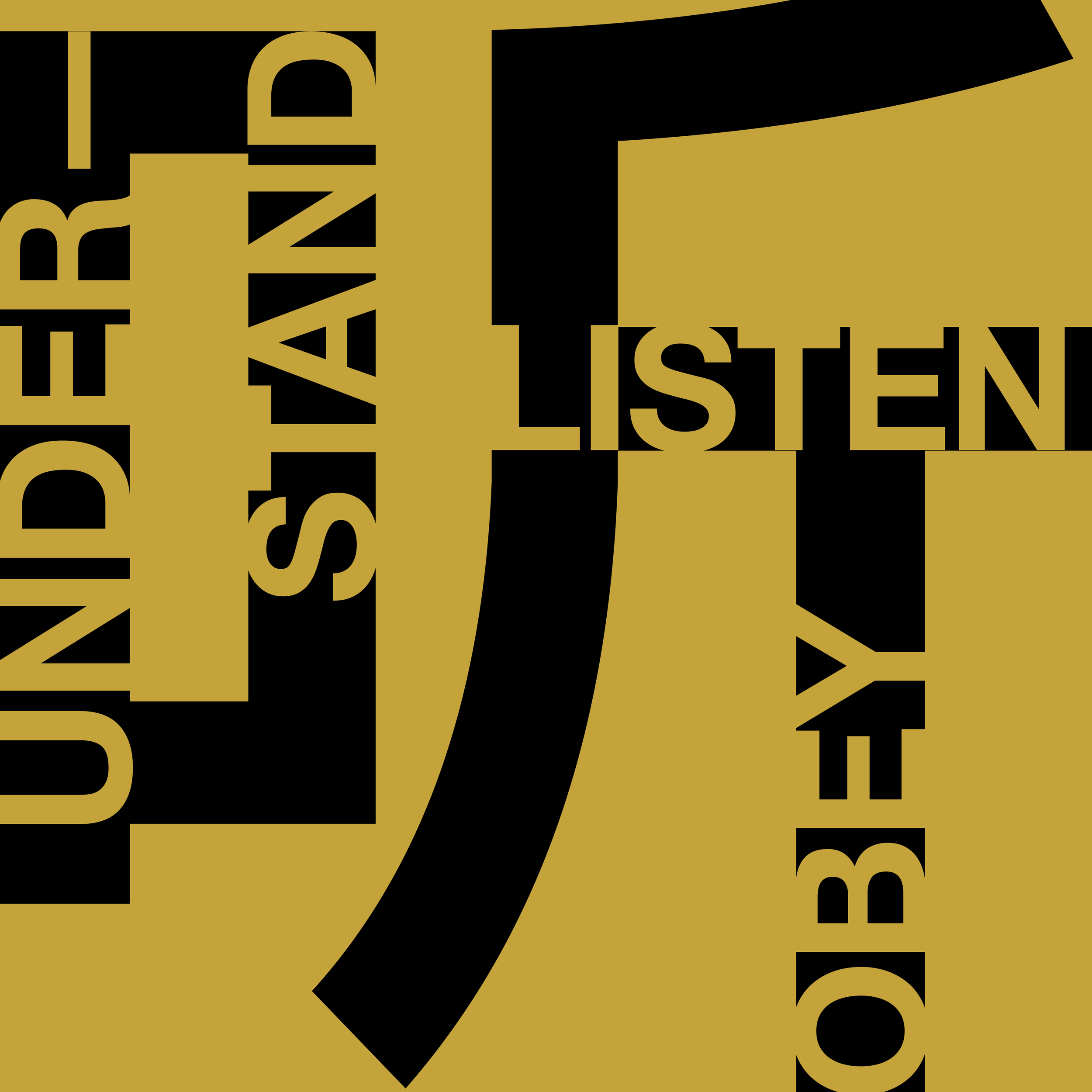
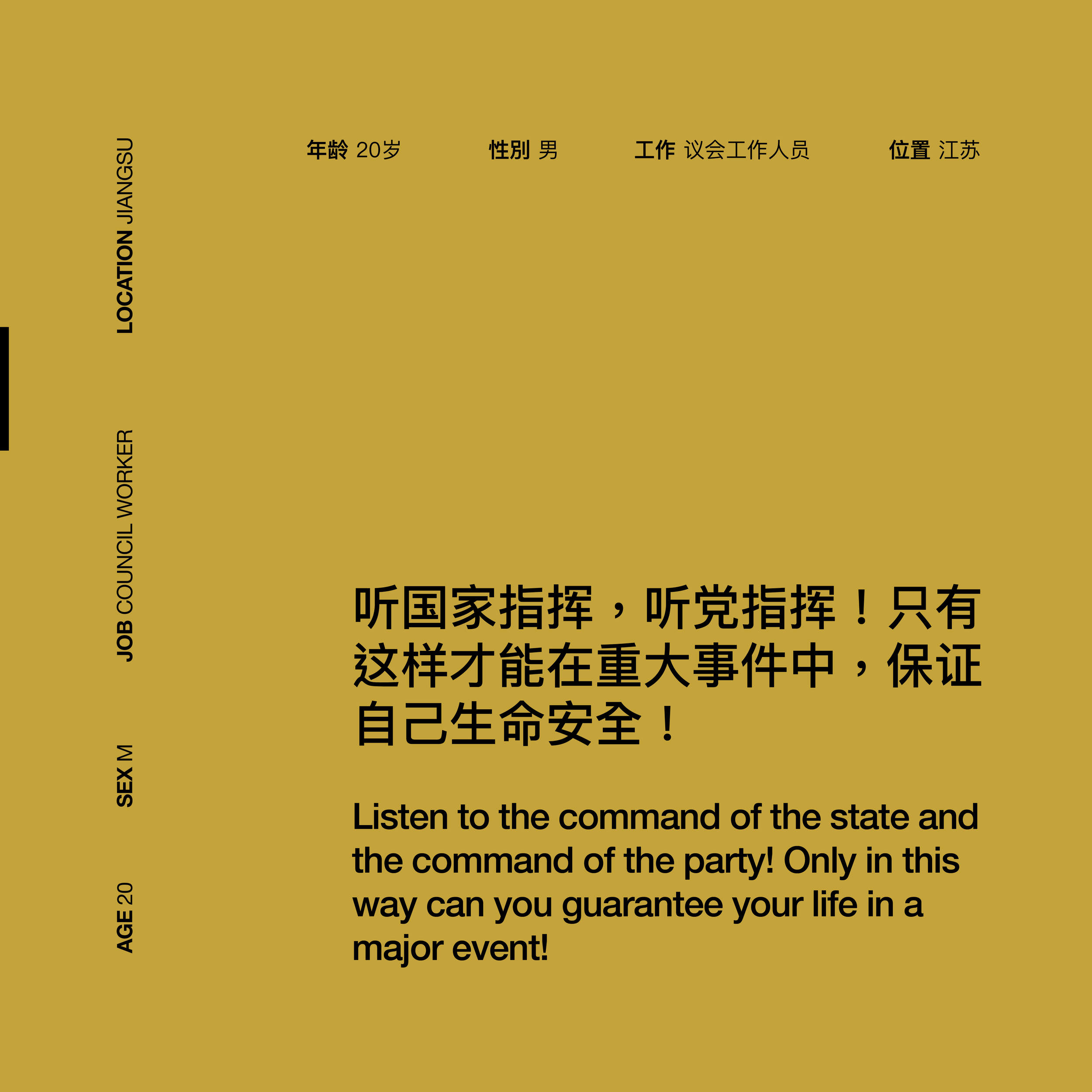
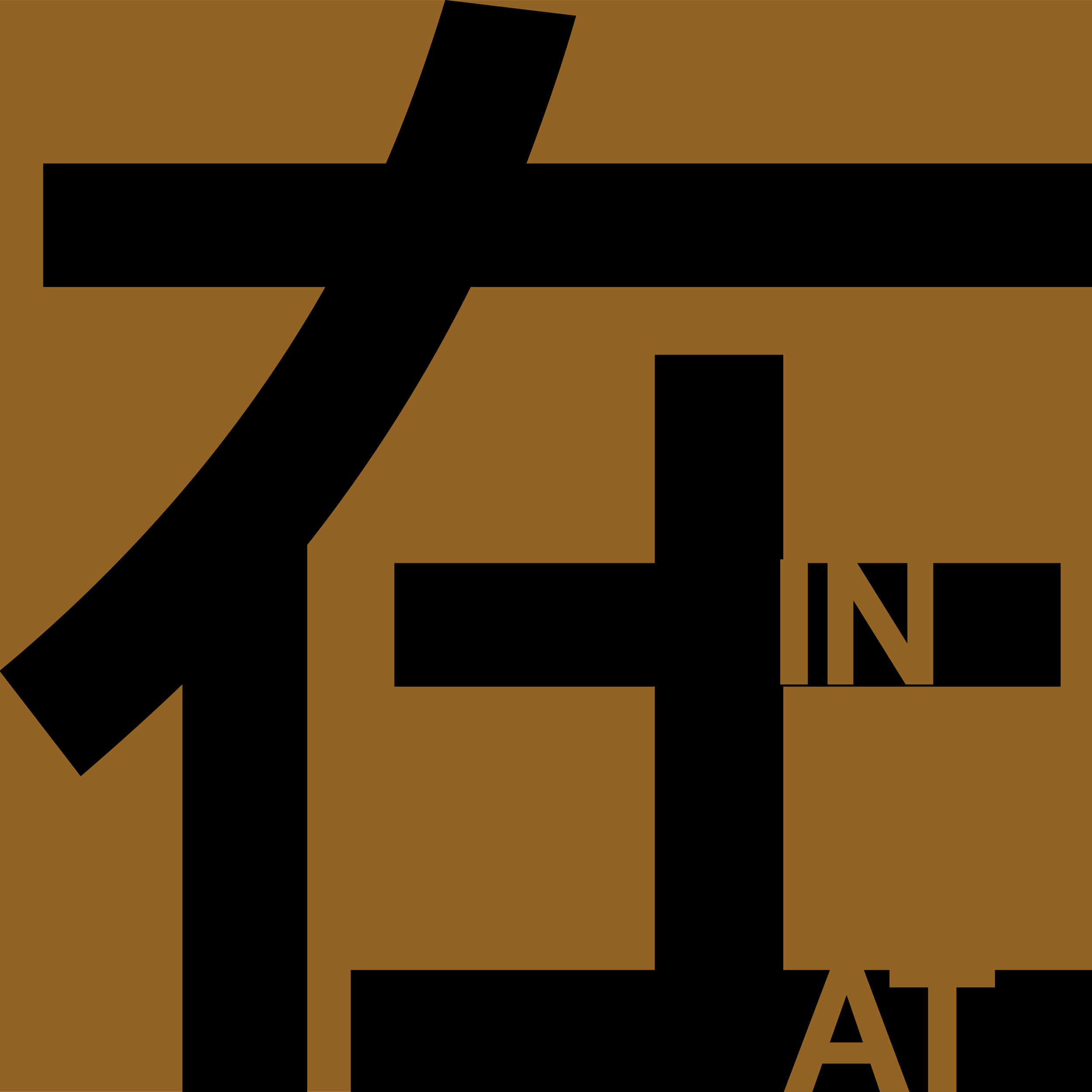
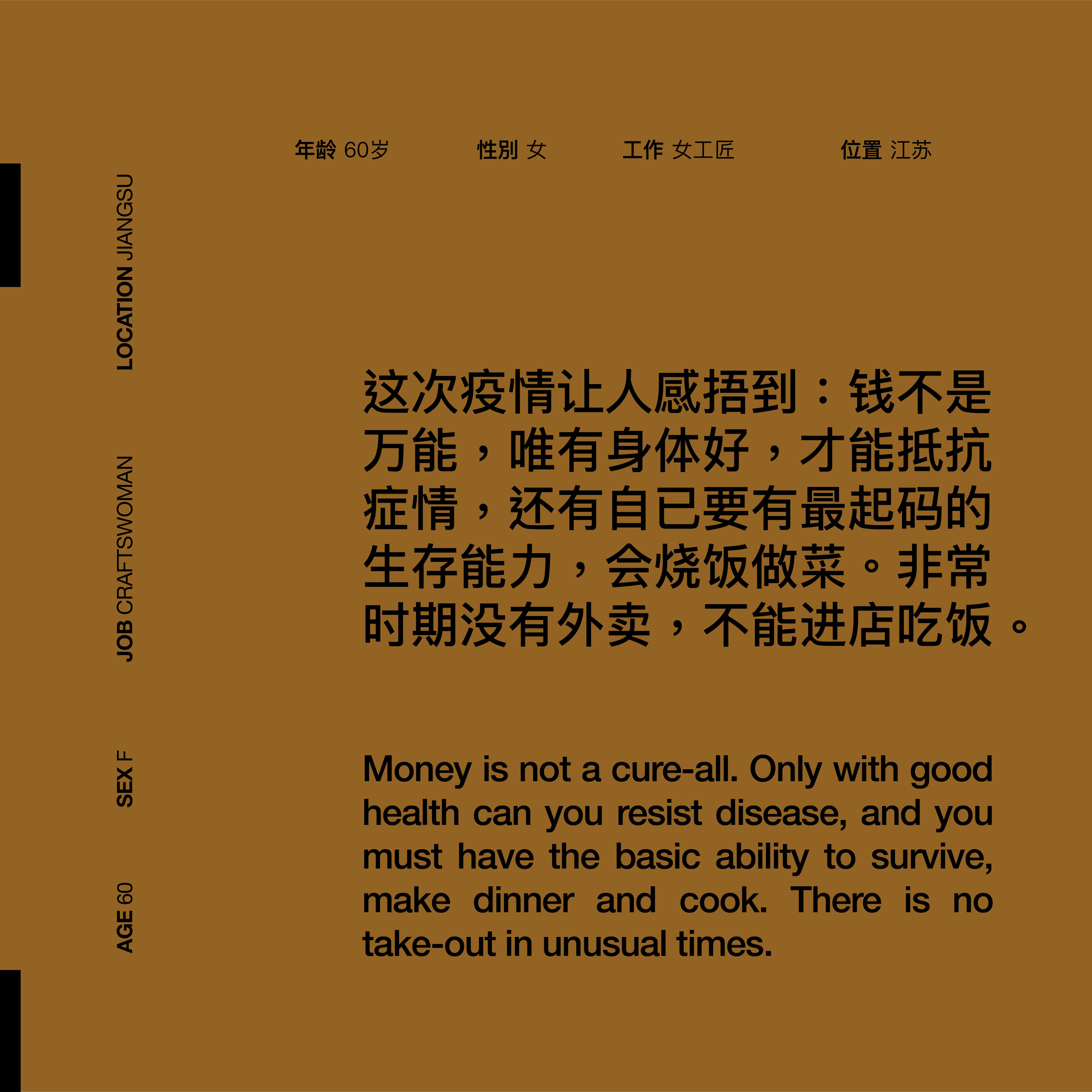

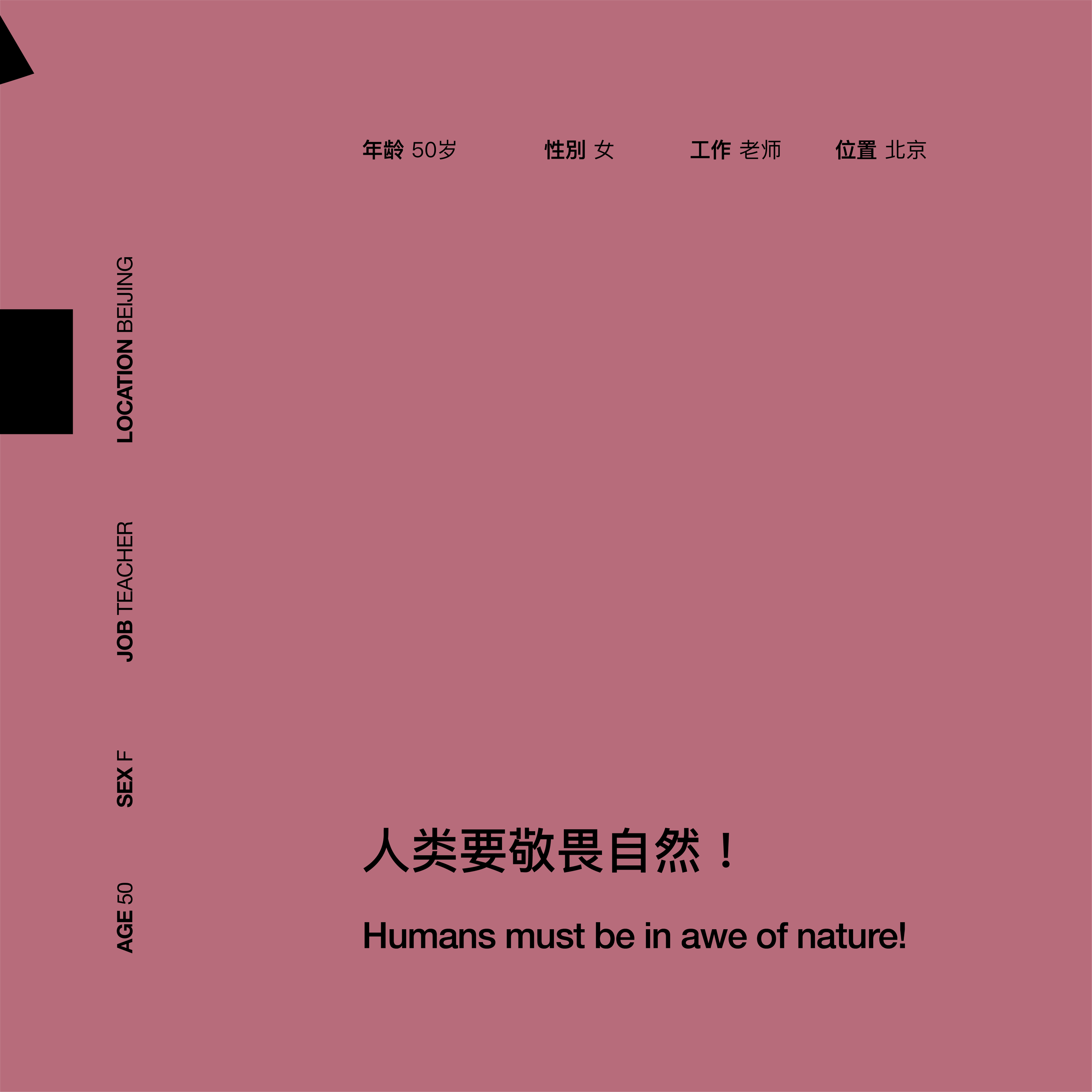
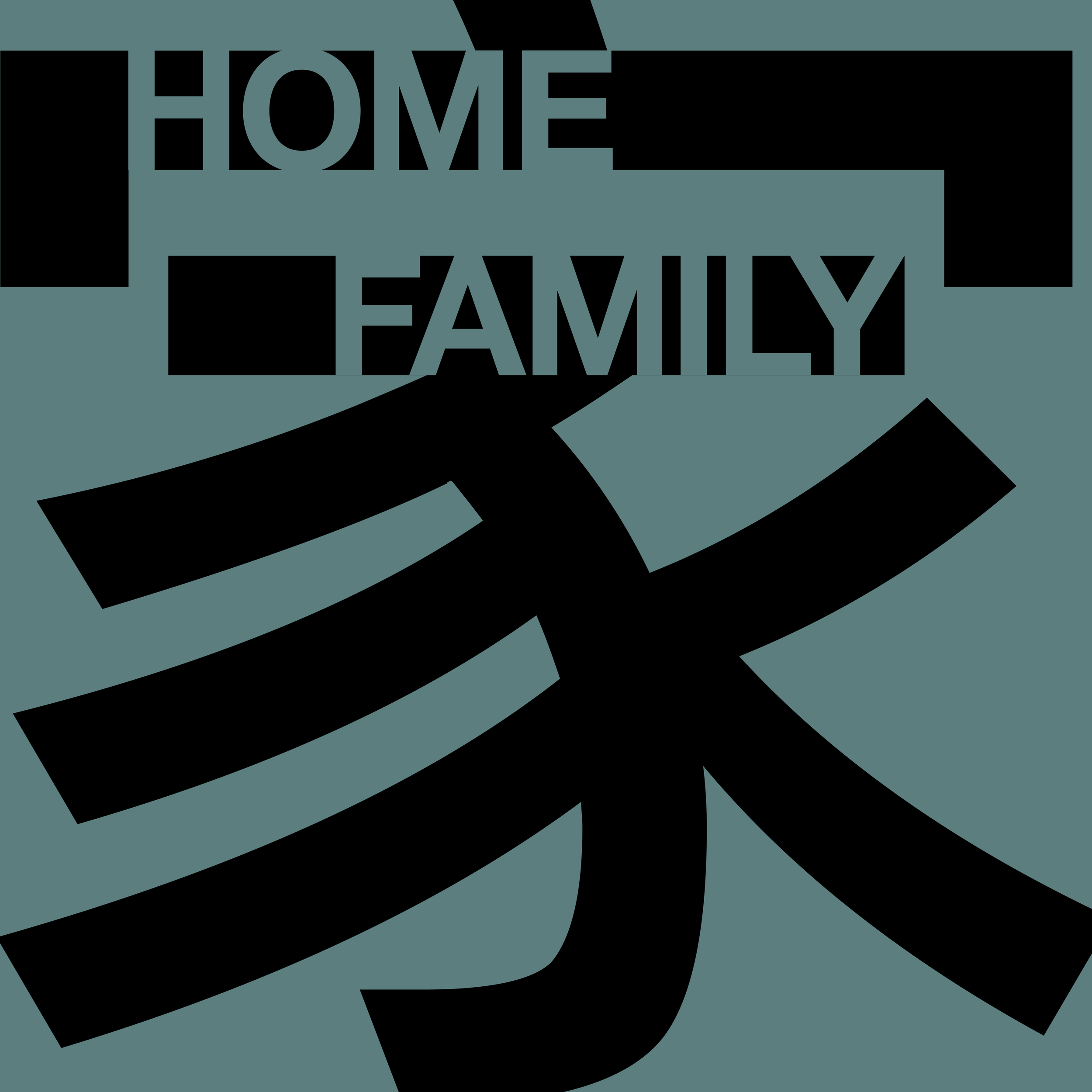
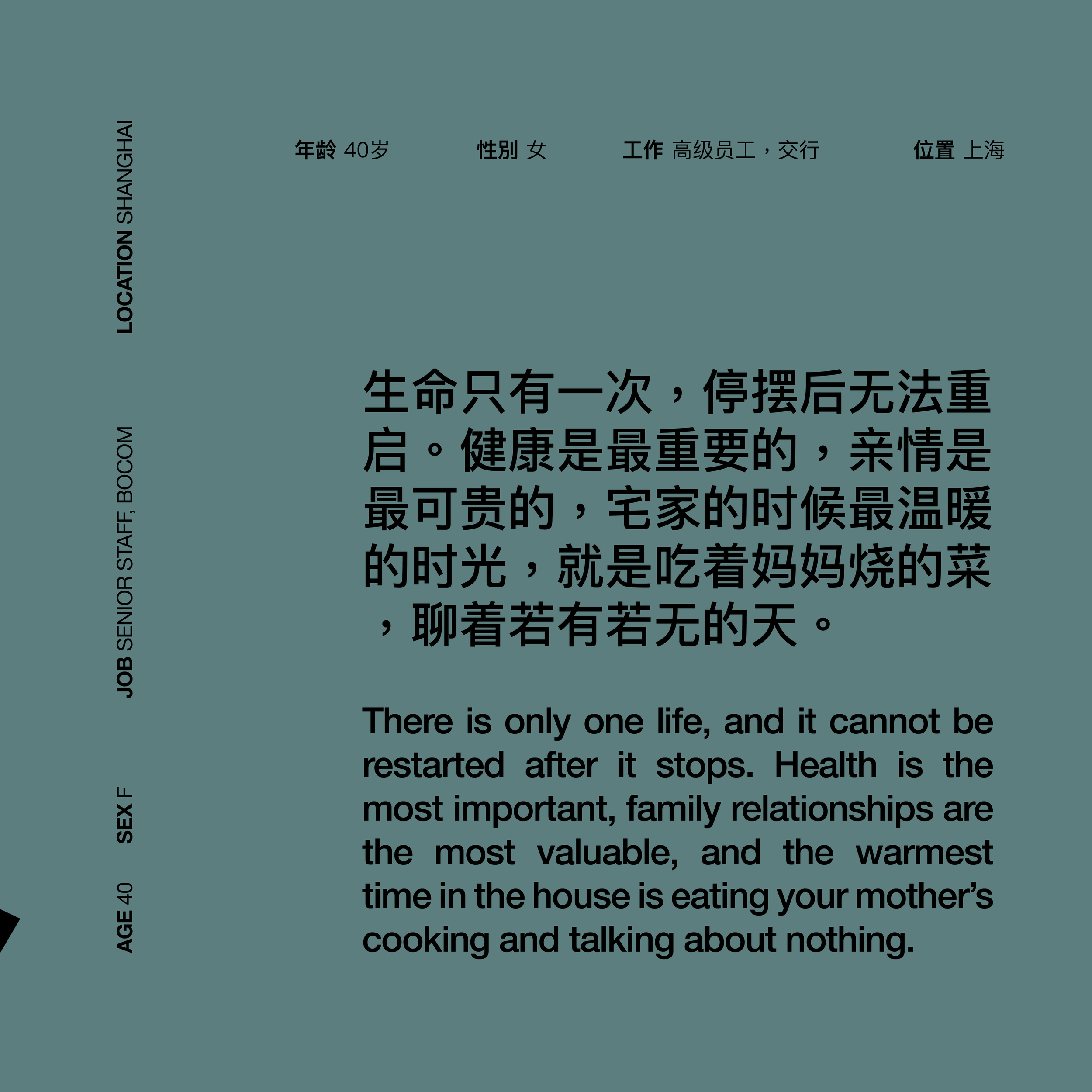
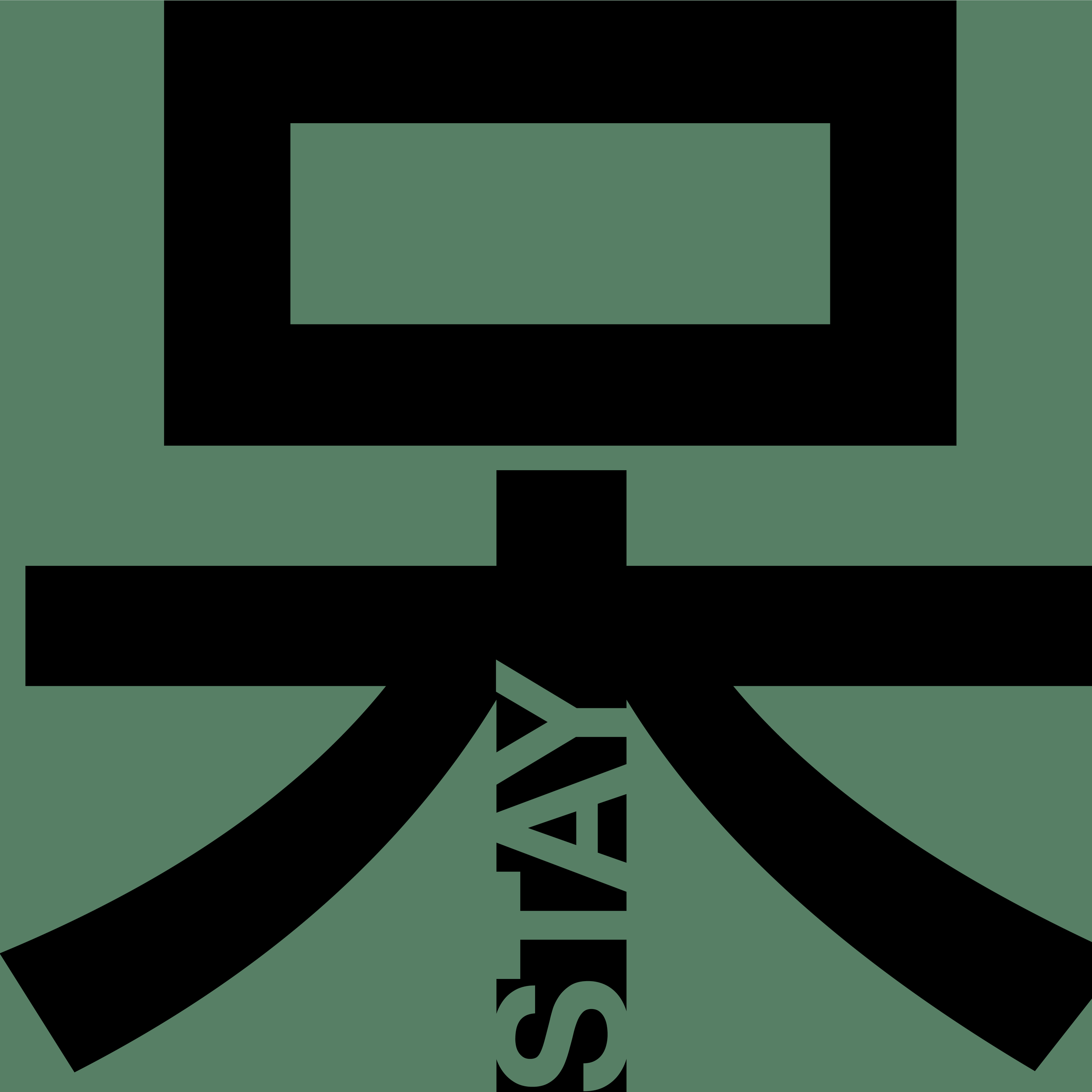
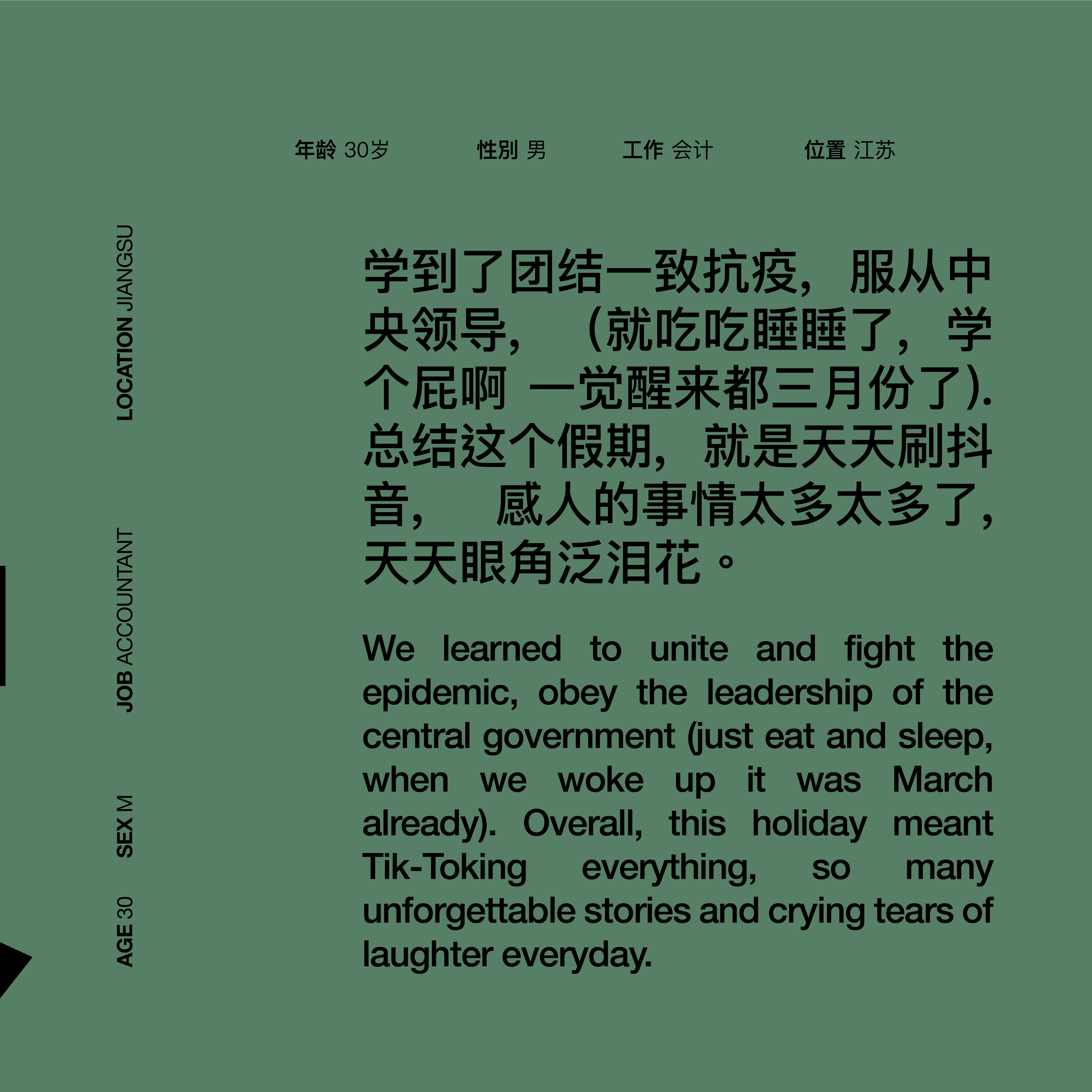

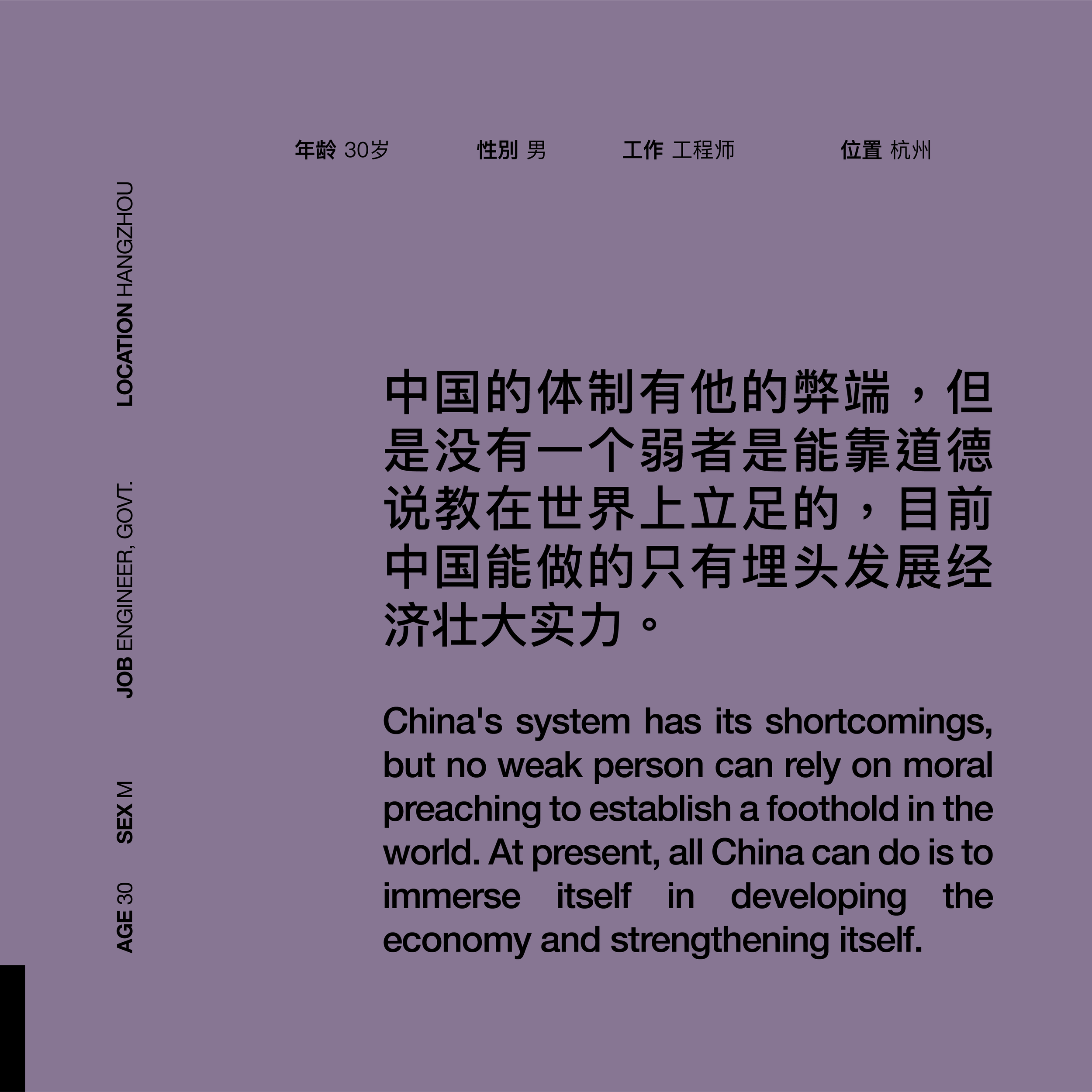


The Manitoba colony of Mennonites reside in relative obscurity. The naïve assumption might be that life is relatively uneventful for a small, quiet, self-sufficient community like this one. Yet, a decade on, Mennonite women are living in the shadow of a four-year period where hundreds of rapes and sexual assaults took place.